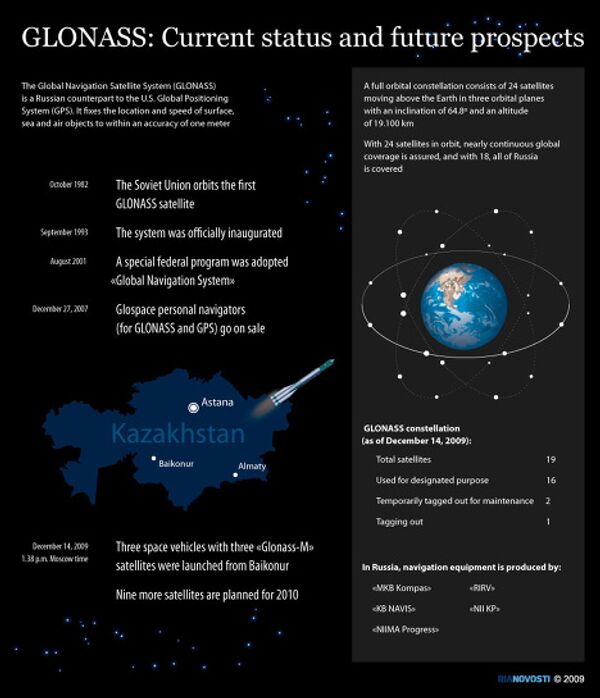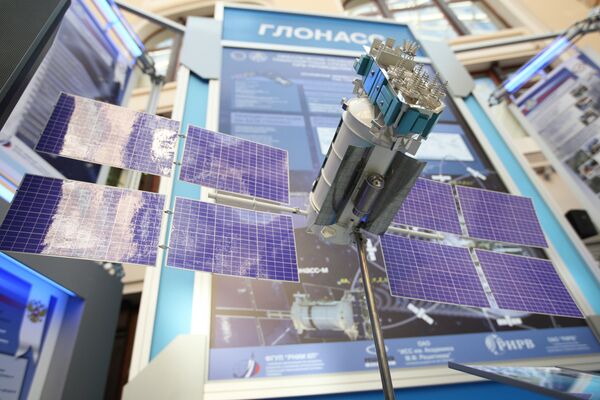MOSCOW, April 26 (RIA Novosti) - A Russian Soyuz-2.1B carrier rocket will lift off from the Plesetsk space center on Friday to deliver another Glonass-M navigation satellite into orbit, Russian Aerospace Defense Forces spokesman Col. Alexei Zolotukhin said.
The satellite will join the existing Glonass constellation, which consists of 29 spacecraft.
A Russian state commission has approved the launch and the rocket has been installed on the launch pad, Zolotukhin said, adding that it will be the fourth Glonass-M launch from Plesetsk in northern Russia.
After reaching a designated orbit, the satellite will complete several weeks of commissioning and testing before entering regular service.
Glonass is Russia’s answer to the US Global Positioning System, or GPS, and is designed for both military and civilian use.

The Glonass satellite constellation, which was initially completed in 1995, suffered from insufficient financing that eventually caused gaps in coverage. But a renewed commitment to the system saw full global coverage restored by 2011.
Glonass satellites are built by the Reshetnev Information Satellite Systems (formerly NPO-PM). Glonass-M satellites have a service life of 7 years, which is significantly higher than that of the previous generation of Glonass satellites.
A group of 29 Glonass satellites is currently in orbit, with 23 spacecraft in operation, three spares, two in maintenance, and one in test flight phase, according to the Russian Federal Space Agency Roscosmos.
By 2020, Russia plans to have 30 Glonass-M and new-generation Glonass-K satellites in orbit, including six in reserve.




